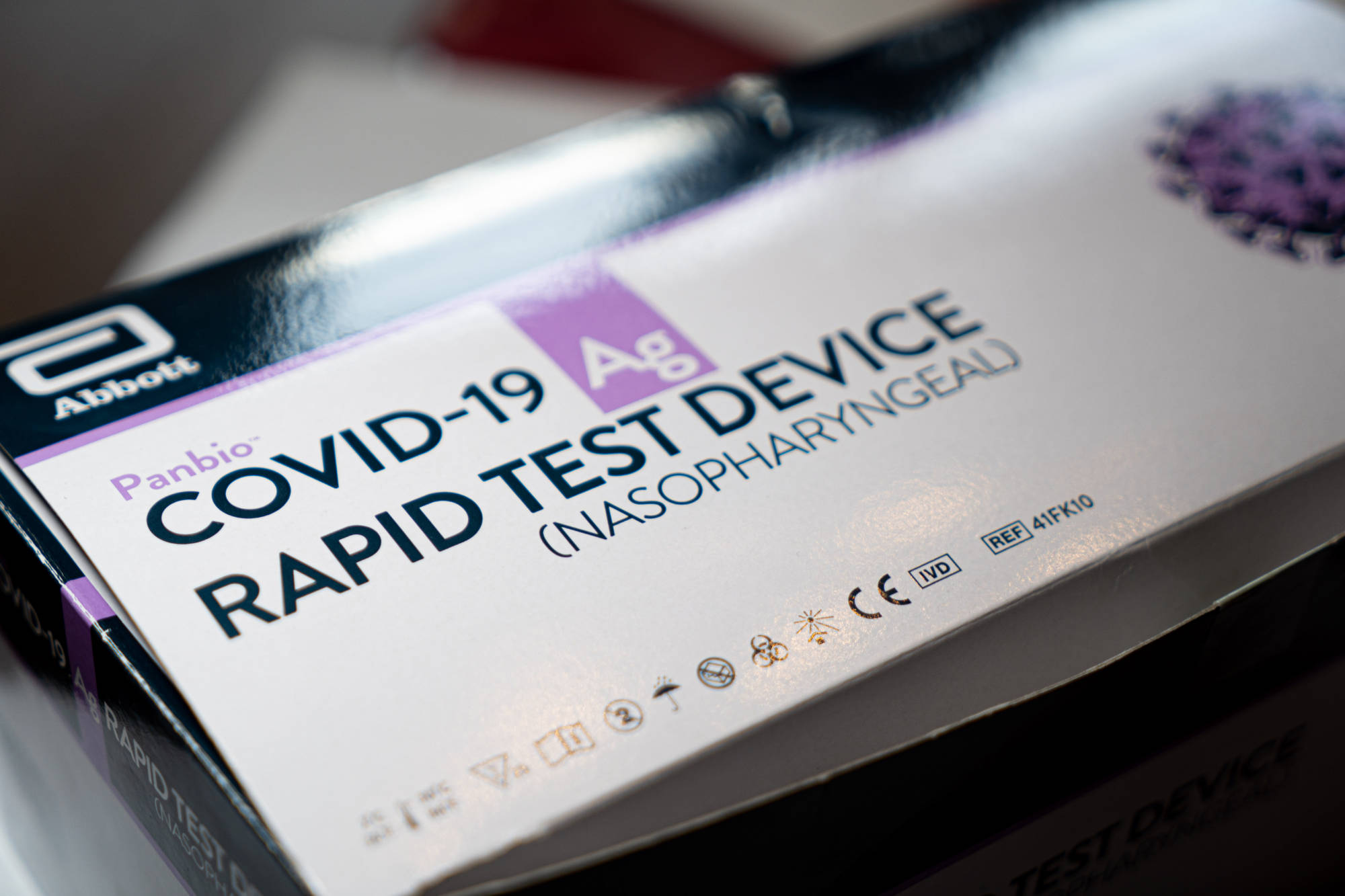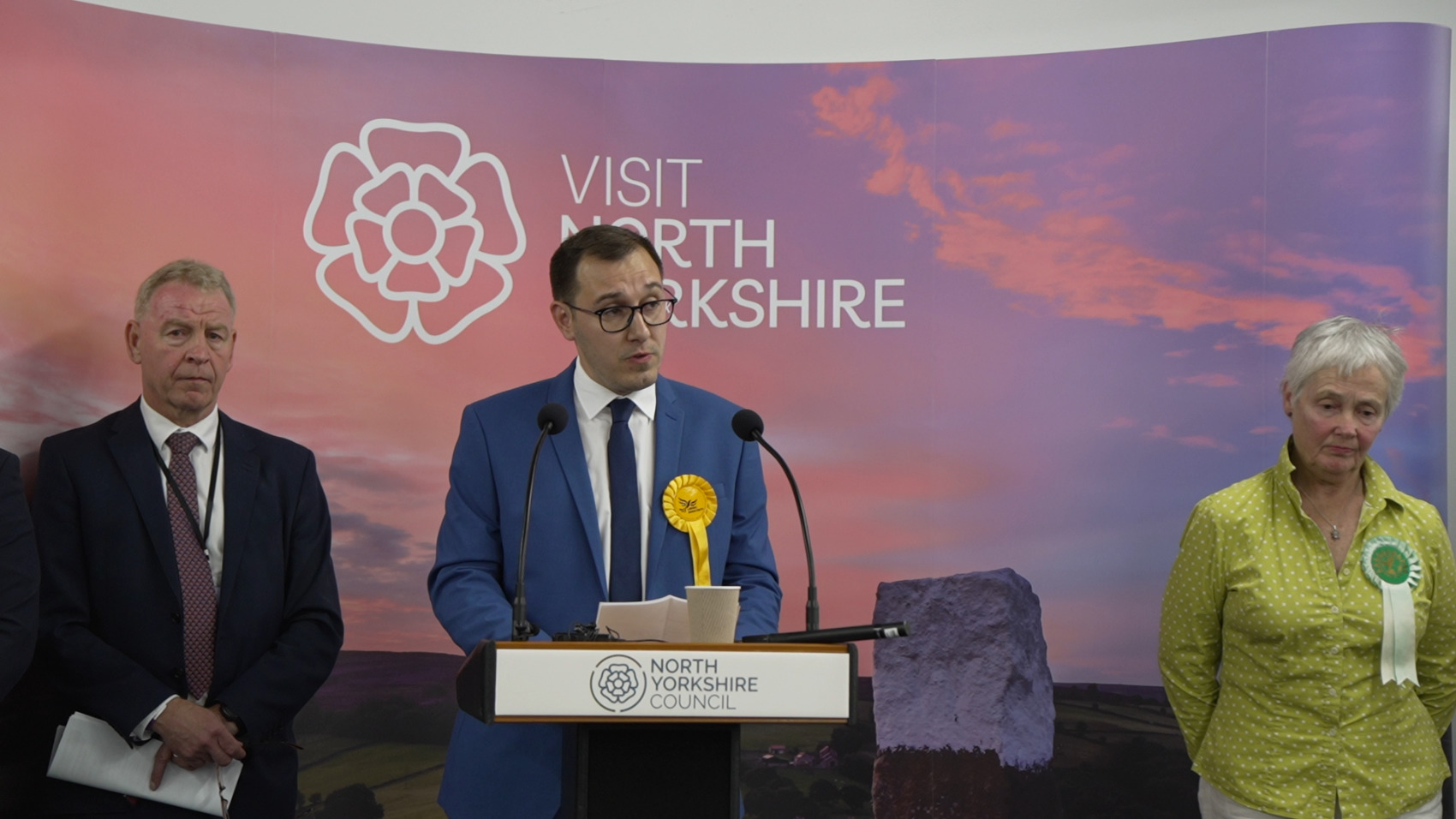The North Yorkshire Local Resilience Forum held a press briefing on Friday, 17 December 2021. At the meeting, updates were given by the Head of Public Health for North Yorkshire, Head of the Clinical Commissioning Group (CCG/ NHS) and the lead for Testing in the County.
The briefing was in response to the UK Government’s announcements around the new Omicron variant.
As a group, each of the reports stressed the need for individuals to gain a 3rd vaccine injection, as the first two no longer provided sufficient protection.
The UK Government have used South Africa has a model for how Omicron may work. In that county it has shown a significant increase in infections, that is now dropping, but there has not been a corresponding increase in hospitalisations or death as a result.
Dr Victoria Turner, North Yorkshire Lead on Covid-19 testing, said:
There are very few cases of Omicron in North Yorkshire, they are still being masked by a significant number of Delta cases.
The confirmed ones are ones that have been identified are those found by genetic sequencing or G-Node typing testing. They are accurate, but a take a time to come through.
The number of confirmed cases reflects the picture as it was a week ago.
Only a small proportion of cases are sent for G-Node testing, only around 20%.
To ensure we pick up as many cases as possible, the focus is to send cases for testing for Omicron where there is a missing S-Gene, and that is something that can be picked up trough PCR testing, although that isn’t 100% accurate as there are a small number of Delta cases that are also missing an S-Gene. We also know that only around 30% of out labs report on if an S-Gene is present.
So counting confirmed cases of Omicron doesn’t give a very accurate picture, it just tells us that there are cases here.
Looking at S-Gene drop-out data gives us a more real time picture, but again won’t be accurate.
So all we can see is that is Omicron is here (in North Yorkshire) and we can expect to see cases rise rapidly.
7 day rate per 100,000 people testing positive for Covid-19
- England Average – 590.1
- North Yorkshire – 370.2
- Selby – 454.6
- Craven – 444.5
- Richmondshire – 443
- Harrogate – 367.5
- Hambleton – 357
- Ryedale – 355.7
- Scarborough 247.3
Amanda Bloor, North Yorkshire, Clinical Commissioning Group:
We know that Omicron is spreading rapidly through Britain, but what we don’t know yet is exactly yet is what impact it will have on causing serious disease and causing hospitalisation.
In the NHS across North Yorkshire we are preparing to standing ready to respond to an increase in patients with covid who do need to be in hospital, should this happen.
As of yesterday, we had 105 Covid-19 positive cases in our regional hospitals, with 15 of those in intensive care.
Number of patients that have tested positive for Covid-19 across North Yorkshire
- Harrogate Hospital – 12
- York Hospital – 30
- Scarborough – 18
- South Tees – 45
- Darlington Memorial Hospital – 29
- Airedale – 21
Nationally, the number of admissions to hospital of people testing positive with Covid-19 (that’s people with just Covid or those that have Covid and been hospitalised for another condition) has remained flat since July 2021, meaning that the UK is not currently seeing a spike in admissions due to Omicron.
From Government published data between 700 and 900 people have been admitted to hospital, testing positive with Covid-19, from July to date. In January 2021, there were around 4,000 admitted per week.
Looking internationally, and specifically South Africa, where the UK Government have said the Omicron variant came from, shows an interesting picture.
South Africa is seeing significant recorded infection rates rise, but that isn’t causing a surge in deaths.
In South Africa:
Around 31% of the population is “fully vaccinated” and in terms of deaths there had been 3,772 from the end of September to now in that period – for the three months before, it showed around 28,000 deaths. Infection rates had peaked at around 24,000 per day, but have now dropped to around 16,000 or currently around double the infection rate in June.
Statistics show there had been 86,376 deaths at the end of September, there had been 90,148 deaths as of the 18 December.
As part of the Government’s Strategy, some routine hospital appointments will be cancelled.
Amanda Bloor, North Yorkshire, Clinical Commissioning Group:
It highlights the position that we are in as we respond nationally to the pandemic, and more specifically in the short-term, the acceleration we are seeing in the Omicron cases.
People will be aware that there is some routine-care, that is not life threatening, that is being delayed as part of the national reponse, and that deicsion allowes us to protect the situation where our hospitals would be overhwlemed with covid cases.
This allows us to preserve resources, maybe contracting covid themselves, and allows us to keep capacity to support urgent cases such as major conditions such as cancer, heart attacks or strokes.
It should help us to minimise loss of life if we couldn’t otherwise cope with the number of covid presenting.
We do know that the rescheduling of some routine appointments will be of huge disapointment to some people, and the NHS is very sorry that we have had to do that.
See for reference:
South Africa COVID – Coronavirus Statistics – Worldometer (worldometers.info)
Healthcare in the UK | Coronavirus in the UK (data.gov.uk)









